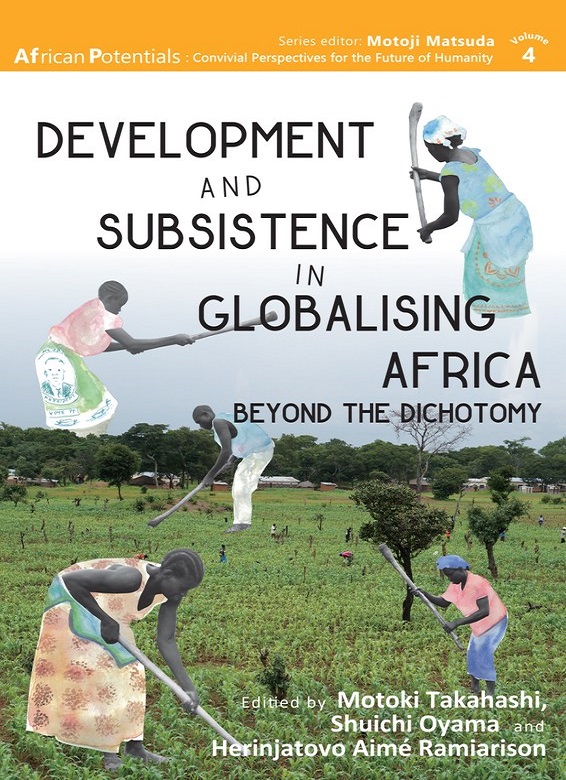edited by Motoki Takahashi, Shuichi Oyama and Herinjatovo Aimé Ramiarison
Beyond the Dichotomy
In Africa, people striving to live and survive under the complex relationship between development and subsistence have been directly or indirectly feeling influences of globalisation. As Africa’s involvement in globalisation deepens, social phenomena are apparently synchronizing or becoming more similar to those in the rest of the world, but they are not homogenised with them, especially those of developed countries now or in the past. The dichotomic view distinguishing development and subsistence has already become outdated. Day after day, African people are trying to reconcile or bridge the two as capable actors. People in Africa, faced with challenges common throughout the world, live in their own ways. Africa can contribute to the world by sharing knowledge acquired through the struggles of development and subsistence, and by bridging the two.


| ISBN | 9789956551576 |
| Pages | 430 |
| Dimensions | 229 |
| Illustrations | Colour Illustrations and Colour Photographs |
| Published | 2021 |
| Publisher | Langaa RPCIG, Cameroon |
| Format | Paperback |



2 comments
“Studies in development and subsistence in particular, and in African Studies in general, benefit from their detailed descriptions of peoples’ lives and their multidisciplinary character, but their tendency for analysis in dichotomous terms has limited the clarity and value of the literature. Recently, our understanding of various aspects of development and subsistence in sub-Saharan Africa and the relation between the two has been shifting substantially, away from the concept of mutual exclusiveness and towards the idea of complexity and interactiveness. The empirical evidence accumulated in this ‘African Potentials’ research adds additional nuances to such inherited dualism.”
Katsuhiko Kitagawa, Professor Emeritus, Kansai University, Japan
“In this exceptional study of the impact of globalisation on Africa’s political economy, the authors affirm post-colonial African economies are a fusion of development initiatives and local subsistence and informal economies. The volume constitutes a remarkable piece of scholarship, given its conceptualisation, scope of thematic coverage, and fascinating range of lived experiences and self-help efforts of the African economies.”
Kweku Ampiah Associate Professor, University of Leeds, UK